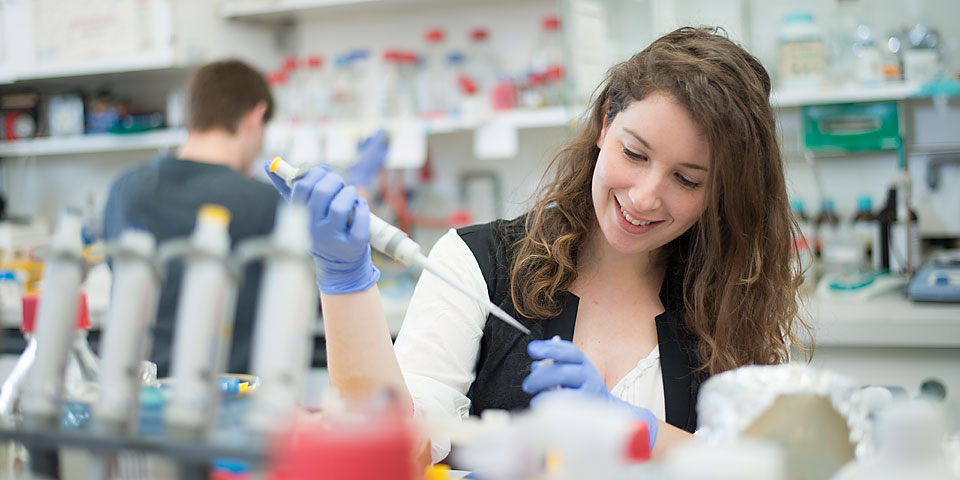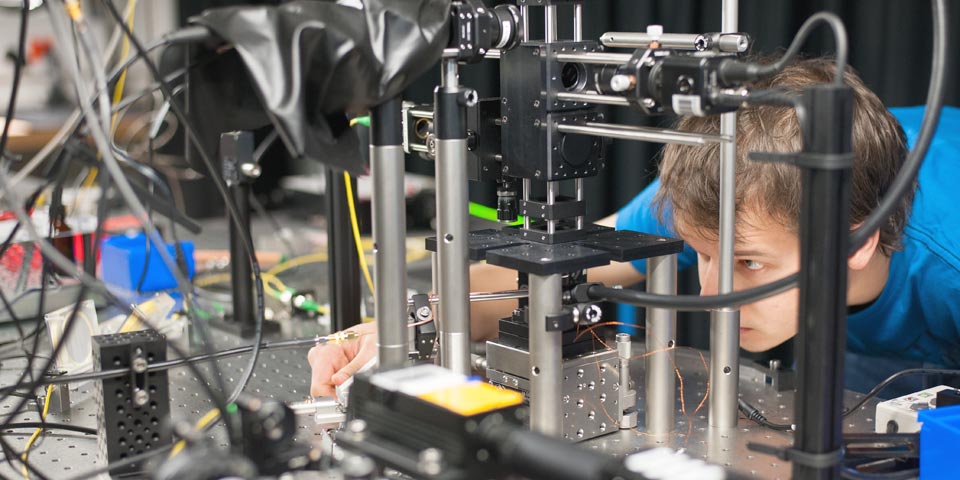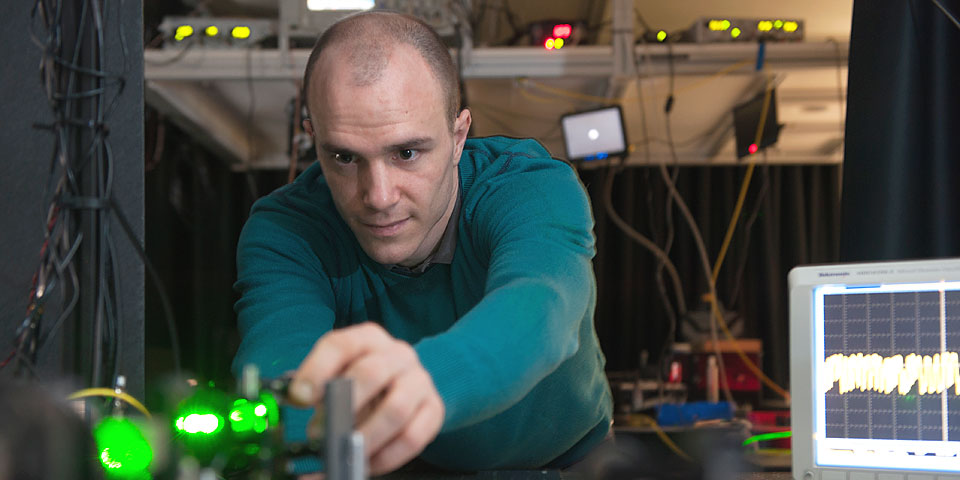Physics of Life Abschluss: Master

Im Überblick
- Art
- Studiengang
- Abschluss
- Master
- Studienstart
- Herbst-, Frühjahrsemester
- Struktur
- 1 Studiengang
- Regelstudienzeit
- 3 Semester
- Credits
- 90
- Sprache
- Englisch
- Zuständige Fakultät
- Philosophisch-Naturwissenschaftliche Fakultät
Zugangsvoraussetzung
Study regulations
Information on admission:
www.unibas.ch/admission
Termine und Fristen
Breakthroughs in life science research often occur at the interface between biology and physics, chemistry, mathematics, programming, as well as engineering. In the past, this has led to revolutionary developments of new methodologies, such as super-resolution microscopy, magnetic resonance techniques, and DNA sequencing techniques. Furthermore, scientists with training in physical and mathematical sciences, as well as engineering, have made broadly impactful contributions to the understanding of living systems by introducing quantitative concepts and theoretical models. This has not only led to innumerable discoveries at the atomic and molecular scale but also at the cellular, multicellular, and ecosystems scale, and for the origin of life itself. As recent developments of molecular techniques have led to the rapid acquisition of huge amounts of quantitative data for biological systems, the impact of scientists with training in physics, mathematics, computer science, and engineering is expected to grow. To accelerate future discoveries in life sciences, the MSc Physics of Life therefore trains students with a BSc education in physical sciences, mathematics, computer science, and engineering in the concepts and techniques of frontier research in life sciences.
Related Links and Downloads
Research Findings and Scientific Developments
Are you interested in current scientific developments and research findings in this field? On the research websites, you will find numerous publications by researchers from the University of Basel. This resource offers valuable insights and helps you get to know a subject area better–both as an orientation aid and as an accompanying source of information during your studies.
Discover publications and research areas now
Das richtige Studium gefunden?
Diese Studienangebote könnten Sie ebenfalls interessieren:

Melde dich jetzt für den Infoabend Master 2026 der Universität Basel an.
Du wechselst demnächst vom Bachelor- ins Masterstudium und hast noch Fragen?
Dann informiere dich bereits jetzt über unser vielfältiges Masterstudienangebot und komme am Donnerstag, 12. März, vorbei, um all deine Fragen zu klären.



